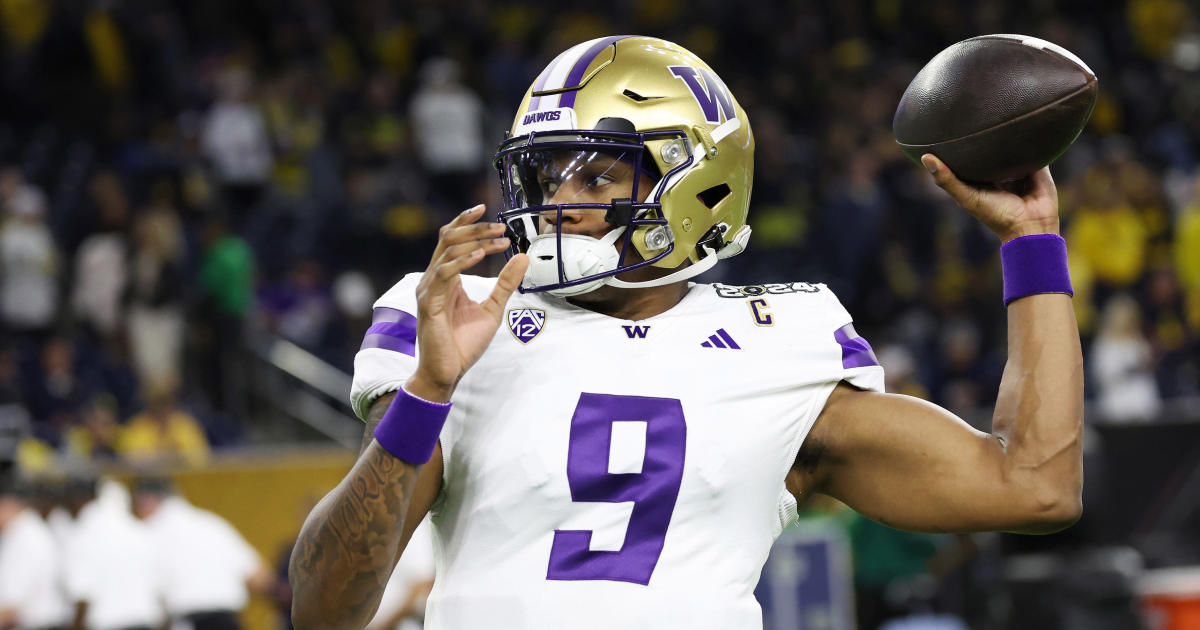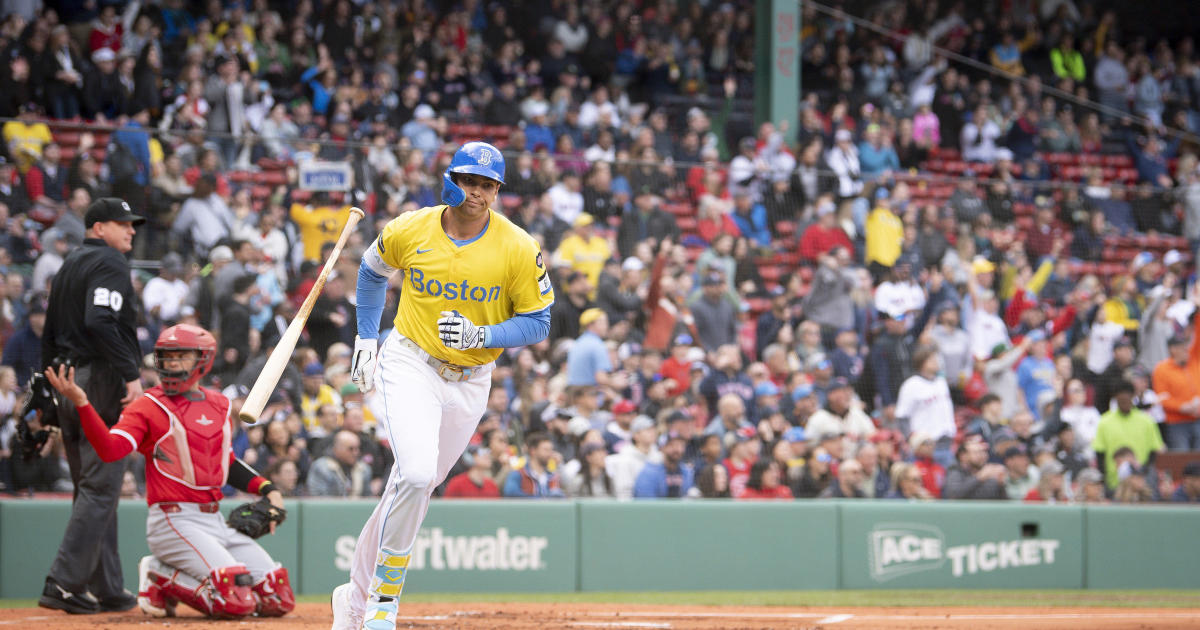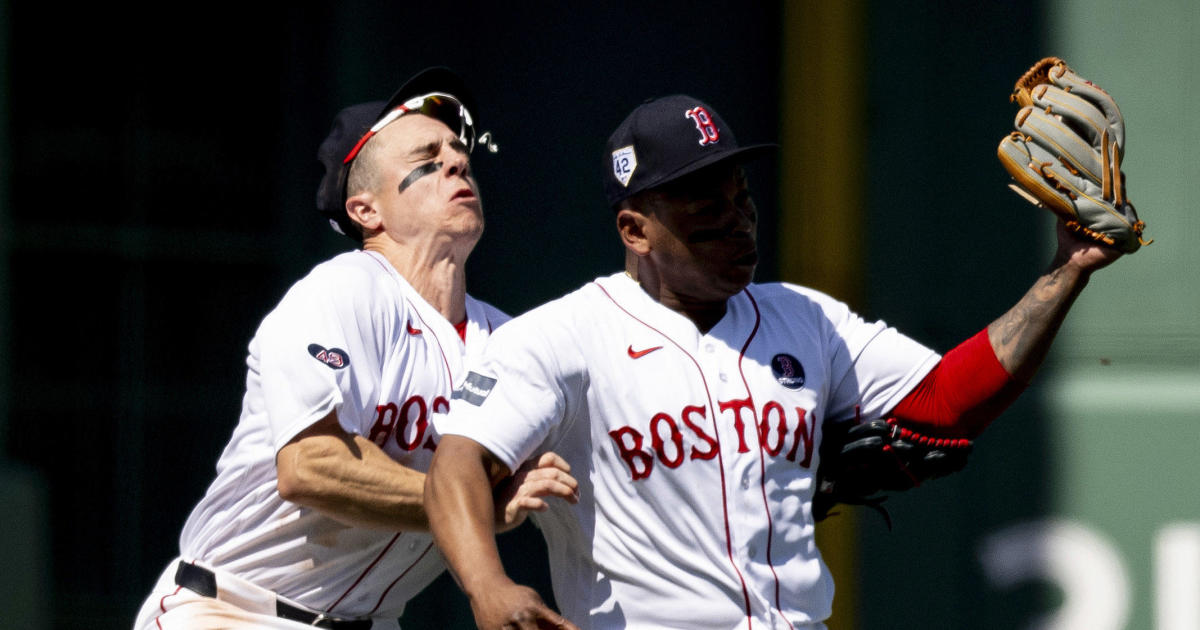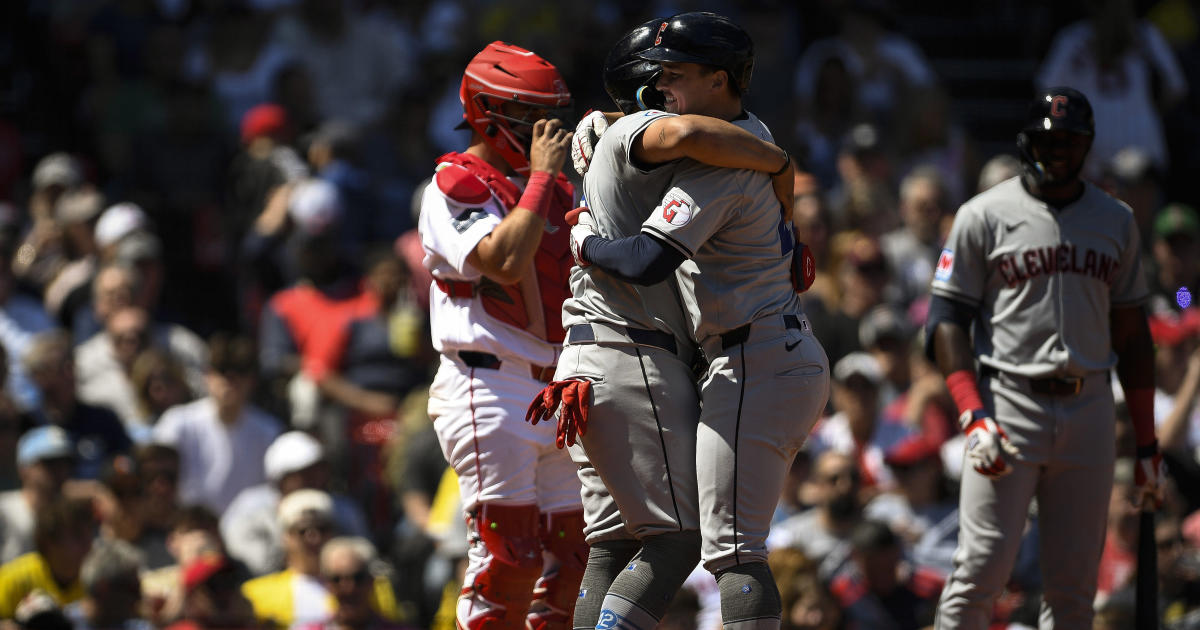Here's One Theory On The Timing Of Julian Edelman's Suspension Announcement
By Michael Hurley, CBS Boston
BOSTON (CBS) -- The NFL is no stranger to the old Friday News Dump®, a strategic move that is only trumped by the classic Holiday News Dump™. The idea is rather simple: When you absolutely have to release news, but you want to minimize the number of people who actually receive that news, you release that news late on a Friday afternoon when everyone has logged off from their computers and headed home for the weekend, or you release that news just before a holiday, when very few people are idly perusing the internet at their cubicles.
Sure enough, the NFL has utilized the latter tactic on Tuesday. First, the league announced a two-game suspension for 49ers linebacker Reuben Foster, a punishment based on a weapons offense and a misdemeanor drug offense. The league also announced the Packers running back Aaron Jones will be suspended two games for a marijuana-related offense. The league also announced that Rams lineman Jamon Brown will be suspended two games for violating the league's substance abuse policy.
That flurry of announcements filled the afternoon, and the lack of announcement regarding a decision on Julian Edelman's suspension appeal was a bit curious. More than a week had passed since Edelman went through his appeal process in front of an independent arbitrator, and considering the case was centered on procedural issues in the process, a week seemed to be more than ample time for an arbitrator to reach a decision. The fact that a ruling on Edelman did not come in the flurry of mid-afternoon suspension announcements made it seem as though perhaps the Edelman case was more complex than most imagined.
But, no. As it turns out, the NFL was just waiting to utilize the ultra-rare Super Late Holiday News Dump with Edelman, as word of Edelman's appeal being denied didn't break until after 7 p.m. on July 3.
In the world of burying a story, that one may have set a new standard.
Now, considering this matter involves a Patriots player, and considering many in New England believes the NFL loves sticking it to the Patriots, one might reasonably wonder why the NFL would want this story buried in the first place. After all, shaming a great Patriots player and dragging his name through the mud for as long as possible seems to be a preferred leisure activity of many of the suits at 345 Park Avenue, right?
Well, yes -- and we'll explore that in a moment. But the NFL's joy in overpunishing the league's best salary cap-era team is outweighed in this instance by the league's insistence and focus on minimizing any and all stories about PEDs. There's a history of that trend, with no bigger example coming in the NFL's swift interference on the Peyton Manning/Charlie Sly/Al Jazeera/HGH story from two years ago. Despite the fact that Manning admitted at the time that HGH was shipped to his house from what seemed like a very suspect medical facility, the NFL very quickly stepped in to announce that nope, Manning did not ever use a performance-enhancing drug. Nope. Never happened. Move on. Find a new slant. The HGH shipped to his house? If he says it was for his wife, then it was for his wife. The fact that he can't feel his fingertips and he could barely even throw a spiral in his late 30s? Irrelevant to the matter at hand. As the ESPN "Sunday NFL Countdown" crew all agreed after Manning's fierce denial in his hand-picked one-on-one interview, If he said he didn't do it, then he didn't do it!
Don't question it. Don't look into the fact that one of the greatest and most famous players to ever wear a football helmet may have needed some medical assistance in order to return to the field after undergoing his fourth surgery on his neck. This game is not dangerous, this game does not damage human bodies, and men can endure the brutal, rigorous seasons solely by eating steak and potatoes. It's fine. No drugs needed.
Forget about it.
Of course, all of that would be hogwash. Football is a violent sport. The NFL is a violent league. It employs athletes who continue to get bigger, faster and stronger every single year. The human body is simply not equipped to last in such a sport, and most of us can accept that reality. That's why there never really is much of an uproar whenever a player gets busted for a PED violation. No matter how big a star or how unknown a player may be, and no matter if it's a number of teammates on a historically dominant defense, the reaction to any PED news in the NFL is generally a collective "meh" from the American public. There's very little outcry, and you don't ever see fans clamoring for asterisks the way they did with baseball in the early 2000s. And that's just how the NFL wants it.
That is just a theory, sure, but it's one that's derived from years of patterns from a league where it seems logically impossible to believe that most players can survive using only natural avenues. The league enforces a PED policy because it must, but the league probably wouldn't be overly upset if no players ended up getting caught.
And, as tends to happen in this neck of the woods, you can't help but compare the different treatment the league applies to PEDs as it does to, say, possibly having some awareness of a ball-deflation scheme which may or may not have even happened. You see, when it came to Tom Brady and the PSI in footballs, the NFL knew that there wasn't really anything to such a story. There was no harm. Nobody had ever once in the history of mankind ever cared or known anything about the inflation level of footballs, and so turning what would have been the most minor offense (if it actually happened, which it did not) into a grand felony really presented no threat to the NFL at all. If the story went on for years and years? Didn't matter. Because PSI and ball inflation never mattered. It was just juicy enough and involved a big enough star for the NFL to garner all sorts of attention 12 months of the year, and while it may have unfairly damaged Brady's reputation, the league certainly had nothing to lose.
The greatest illustration of the NFL not actually caring about ball pressure came when Roger Goodell stated, in the midst of fighting tooth-and-nail in court systems to keep Brady suspended, that Brady is a "surefire Hall of Famer." Surely, a man of superior integrity such as Goodell would not want cheaters making the Hall of Fame. So the whole DeflateGate saga really had nothing to do with integrity or the rules and instead had everything to do with the NFL manipulating and controlling a message.
If it had been a PED accusation instead of a bogus ball-deflation accusation launched by a jealous, loser GM? You can bet the NFL would have nipped that one right in the bud with a concise and direct press release dismissing all the claims. Just look at the "results" of the investigation on Brady, which was a 200-plus-page document, and compare them to the "results" of the investigation on Manning, which was 129 words.
Likewise, look at last week's announcement from the NFL of Jameis Winston's three-game suspension for sexual assault. This was a case, mind you, that the NFL knew nothing about until it was reported by Buzzfeed News.
Buzz. Feed. News. That's Buzzfeed News, discovering what the NFL cannot about a star player allegedly groping an Uber driver.
Once the story went public, Winston denied it and accused the victim of being "confused." The NFL looked into it, and after seven months, concluded that the proper punishment for Winston would be a three-game suspension. That "mandatory" six-game suspension for personal conduct policy violations that was instituted back in 2014? Pfft. Forget about that; Josh Brown's whopping one-game ban showed that the "policy" held absolutely no value to Goodell and the NFL. The policy was, essentially, just a press release to take a little heat off the league in the wake of the Ray Rice fiasco. And it sure as heck won't be applied to Winston, because Winston is going to play nice and accept our suspension in exchange for not fighting the case and dragging it out over the coming months (and perhaps years). Winston will take a knee (no, not that kind of knee), kiss the commissioner's ring, and the story will disappear within days after a 367-word press release is sent out to the media. (Let's release that one just before a summer holiday weekend, though, just to be safe.)
That is just what the league likes to do with stories it would prefer to disappear. And that's what would appear to have been applied with the timing of Edelman's appeal denial.
Now, the denial was in and of itself not exactly earth-shattering news. But that's only because we've heard about this suspension now for almost a full month. News of the suspension leaked early, which provided all of us with a glimpse behind the curtain of the PED punishment process. It also minimized the impact of Tuesday night's news. Can you imagine if Tuesday's news was the first anyone had heard of Edelman's suspension. There would have been mayhem ... but only as much as is possible at 7 p.m. on the third of July.
This isn't necessarily anything new. Back in 2015, when the Manning/HGH story was blowing up, Mike Freeman of Bleacher Report spoke to players who estimated that between 10 and 40 percent of NFL players use HGH. Freeman said "the league's [HGH] testing program has no teeth" and that "there's little chance any player would ever get caught under these rules" as of 2015.
Perhaps the most succinct and insightful look into the mind of an NFL player with regard to PEDs came from Akbar Gbaja-Biamila, now known as the host of "American Ninja Warrior." The former NFL player wrote on -- of all places -- NFL.com in 2012 about how and why players would take almost any supplement or drug if it gave them a leg up on their competition. Gbaja-Biamila explained that a pregame Toradol injection was the baseline of what players would do to just deal with the pain of playing football.
"Every game I played after [my first NFL game], I took a shot of Toradol. I felt like it gave me an edge, but in reality I was just on an even playing field because this was customary in every locker room around the league," Gbaja-Biamila wrote. "Any game-day pain you felt disappeared until you woke up the next morning."
In a world where contracts aren't guaranteed and money is low comparative to the other major sports leagues, Gbaja-Biamila painted a picture that made it seem as though NFL players have almost no choice when it comes to seeking an edge.
"In no way am I condoning using banned substances," he said. "However, as the list of banned substances grows, players will find ways to obtain the newest edge in order to maximize their earning potential."
That is the grim reality of playing football in the NFL, and it applies to everyone in the league. The NFL would just prefer that the American public continue to only look at the polished product on Sundays and pay no attention to the man behind the curtain -- the man who's likely taking a number of medications and supplements just to be able to deal with the pain and keep up with everyone else in the league. That's at least a reasonable conclusion to be drawn when the league saves its PED suspension announcements for 7 p.m. the night before a national holiday.
You can email Michael Hurley or find him on Twitter @michaelFhurley.



